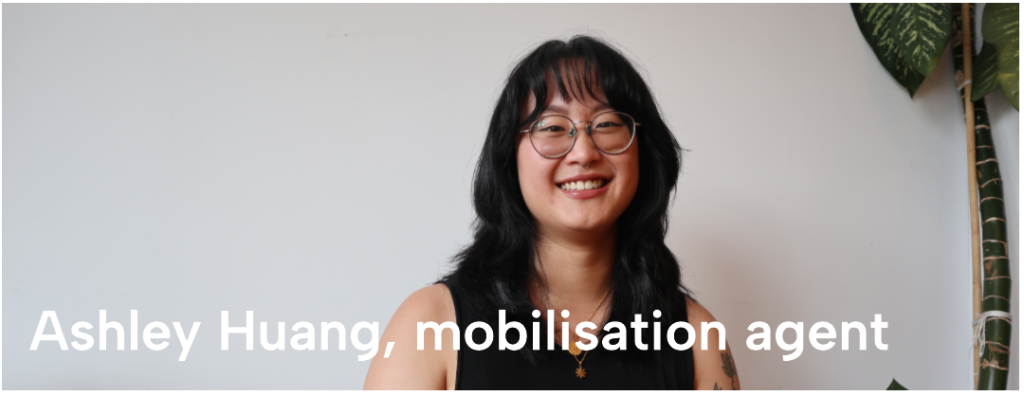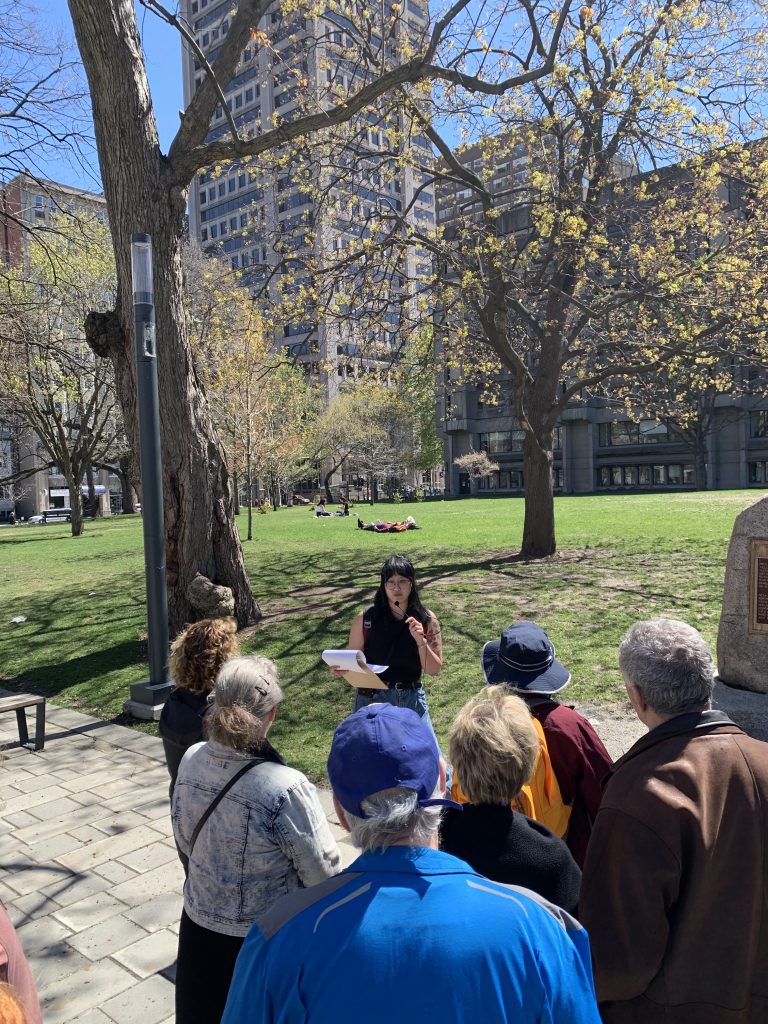Article written by Philippe Beauchemin in collaboration with the Carrefour jeunesse-emploi Montréal Centre-Ville
This piece was submitted to the Citizen Journal project of the Peter-McGill Community Council. Please note that the opinions expressed in these articles do not necessarily reflect those of our organization. This project aims to create space for the voices of residents, students and friends of the neighbourhood through articles, photos, videos, and podcasts in any language. Are you interested in contributing? Contact us at benevolat@petermcgill.org !

Ashley Huang is the new mobilisation agent at the Carrefour jeunesse-emploi Montréal Centre-Ville. She is focused on connecting with residents and on providing solutions to issues concerning the Peter-McGill district in more ways than one can imagine.
PB: Hi Ashley! Can you tell me a little bit about yourself?
AH: Hi! I’m a longtime community worker, originally from Alberta but moved to Montreal a few years ago to pursue a master’s degree in urban planning. I’ll say that my road to where I am started from a concern about mental health, and because of that I first did a bachelor’s degree in psychology. I worked at a social welfare agency after I graduated, as a caseworker in a subsidised housing program. That highlighted for me how many people lack basic needs like shelter, and how these issues affect mental health. That’s what made me pursue a master’s degree in urban planning where I studied social housing and how we can make housing affordable and accessible. All that leads me to where I am today, which is connecting with the public on what they need in their community to thrive, which includes housing, green spaces, food security, child care, and many other issues. The more I spend time with residents, the more I realise that mental health is just one way to assess the wellness of a community.
PB: What gives your work meaning and what motivates you?
AH: Definitely getting to spend time face to face with residents and community workers. It keeps me grounded and it means that every day is interesting and different. You realise when you do that how much people care, and how much people are motivated themselves, and that really motivates me.
PB: Can you tell us a bit about your work? What do you do?
AH: The point of my work is to engage residents in their community and enable them to act on local issues in a way that’s meaningful to them. My day-to-day can involve planning events to bring people into community spaces and parks, facilitating residents to meet each other, connecting with other organisations and with the city to discuss their plans for the neighbourhood, and participating in neighbourhood activities.
PB: What do you hope to accomplish with your work?
AH: That’s a really good question. I think it’s important that community work has a clear mandate and scope for the population that it intends to serve. That’s because there are so many actors who are involved, including residents, community workers, city employees, businesses and other stakeholders, and within each of those groups there is enormous diversity in terms of capability and needs. What I hope to accomplish is to increase the overall capacity of residents so that resident-led projects can grow and become more independent. This can be done by providing a place for citizen meetings, funding resident-led activities, and by doing local advocacy. There are a lot of emergent needs and a lot of dedicated people, but sometimes resources and people need to be connected to each other. One thing that I’ve been working on with my team has been a detailed mobilisation plan that outlines the demographics we serve, the services that are offered, and the results that we hope for. Through that, I hope to do the best work with the monetary and human resources that we have at hand.
PB: What is your vision of the future of Peter-McGill’s district and community?
AH: I don’t think it’s entirely up to me to decide, because the point of community mobilisation is to empower residents, so ideally, the work that I do makes it easier for residents to make themselves heard and enact the change that they think is necessary. It’s less about what I want, and more about making sure everyone in this neighbourhood has a voice, and feels like that voice is heard.
PB: What is a message you’d like to pass on to the youth?
AH: Especially for young people who are trying to find their place, it can feel like there’s too much to do in order to make a difference; I felt that way for a long time and it can be quite paralysing, but what I have found through my work is that most lasting and equitable change is done gradually, one day at a time, by people who care. I have always found that it’s really grounding to just go out in the community and spend time with people, and then everything feels so much more possible and optimistic.
PB: Thank you so much Ashley, we’ll see you around.

Share your ideas with us!
You're passionate about a specific subject and you wish to share your thoughts in a published article? We're open to submissions!